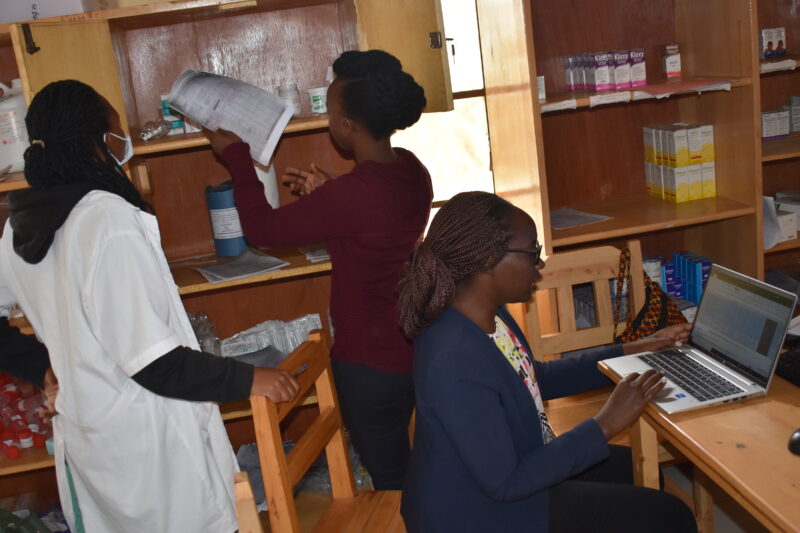Effective supply chain management is key to minimizing the unavailability, or ‘stockout,’ of essential commodities that prevent and treat malaria, such as tests, medicines, and insecticide treated nets. A high performing supply chain can also boost health system resilience and increase patient satisfaction, as the medicines and nets that can keep families safe from malaria are available when they need them.
The U.S. President’s Malaria Initiative (PMI), through the USAID Global Supply Chain Program- Procurement and Supply Management (GHSC-PSM) project, is working with Rwanda’s Ministry of Health to address critical issues in Rwanda’s supply chain. One way PMI is helping to strengthen Rwanda’s supply chain is by making sure that the health professionals managing malaria commodity ordering, tracking, and delivery have the skills and tools they need to be successful.
PMI uses a Quality Management Improvement Approach (QMIA) to monitor the performance of supply chain professionals and enhance their skills in supply chain operations. The approach has two components: supervisory site visits to assess performance and discussion sessions for experience-sharing and skill-building. PMI’s efforts have focused on supply chain staff members at district warehouses and at the health facilities where commodities are distributed to community health workers.
Since 2017, PMI has supported QMIA-based activities to strengthen the performance of 1,300 supply chain staff members in around 600 health facilities and 30 district warehouses throughout Rwanda. These activities have contributed to the percentage of sites that use the electronic logistic management information system (eLMIS) increasing from 55 percent to 96 percent. Use of the eLMIS is essential for the effective procurement, tracking, and distribution of malaria commodities. Assessments also showed that data accuracy at facilities monitored increased from 25 percent to 85 percent.
Improvements such as these mean that Rwanda’s supply chain professionals are better able to track commodity orders and anticipate supply needs. This has resulted in only 1 percent of health facilities reporting stockouts of malaria commodities in 2022, down from 10 percent in 2017. With fewer stockouts, families and patients have better access to insecticide treated nets to protect them from malaria-carrying mosquitoes, and health workers have better access to the tests and drugs used to diagnose and treat malaria. This has contributed to a steep decline in malaria cases and deaths in Rwanda.

GHSC-PSM staff, supported by PMI, conducting a QMIA site supervisory visit at Kabilizi Health Centre, in the Nyaruguru District, Rwanda. Photo credit: GHSC-PSM
Pharmacist Thadee Nzahumunyurwa, who works at Kibungo Hospital, has seen how the skills developed through training are benefitting his patients: “At our health facility, through QMIA supervisory visits and training, we have acquired skills on how to monitor several supply chain indicators such as stock availability and stockout. This enables us to make sure our patients never run out of much-needed essential medicines and reduces wastage through commodity expiries.”
Gaspard Harelimana, Assistant Regional Warehouse Manager, Rwamagana District has also seen a reduction in medicine wastage through better stock management in his district: “From QMIA supportive site visits and training, healthcare providers have acquired the skills to record all data related to malaria commodities and make sure they are used effectively. Before QMIA, malaria medicines had high expiry rates, but due to pipeline monitoring and the redistributions skills acquired, these expiries are now minimal.”
In 2021, the district warehouses began to take over implementation of QMIA themselves, conducting monthly site visits to health facilities, making this approach to improved supply chain management a core part of the Rwandan system for managing malaria commodities. This brings Rwanda one step closer to the uninterrupted supply of life-saving malaria commodities that is needed to achieve the government’s goals of zero malaria cases by 2030.
Cover photo: A mother receiving a mosquito net at a local clinic in Rwanda. Photo credit: GHSC-PSM
